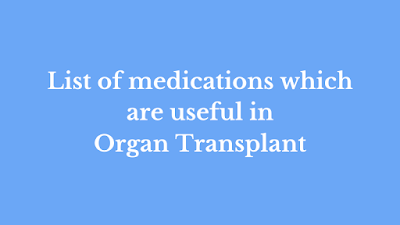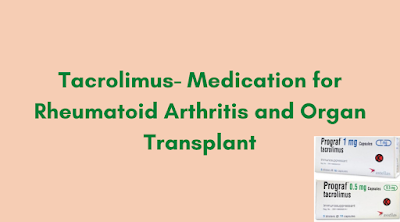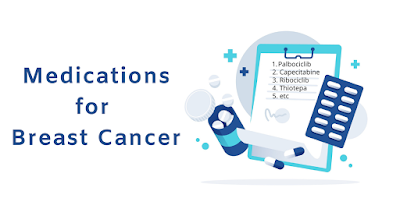The organ transplant is basically a surgical operation through which a failing or damaged organ in the human body can be removed and replaced with the functioning one. The donated organ can be from a deceased Or living donor. In a few cases an artificial organ can be used.
Azathioprine:
Azathioprine is recommended in order to prevent the rejections of liver Or kidney allografts, basically in conjunction with the other therapies including the corticosteroids, immunosuppressants, and local radiation therapy. The administration protocol initiated either at about the time of the transplantation or within the following a couple of days.
Note: A few other indications of azathioprine are: Rheumatoid Arthritis & Inflammatory Bowel Disease.
Dose: The dose of Azathioprine is needed in order to prevent as well as resist the rejection and to reduce/minimize the toxicity would vary with the individual patients; this required careful management. The starting dose is 3 to 5 mg/kg per day, beginning at about the time of the transplant. This drug should be given as a single daily dose on the day of, and in less cases 1-3 days prior to transplantation. Azathioprine dose must not be boosted to toxic levels just because of the threatened rejection.
When to Take: Taking the medication twice daily instead of all at once, or taking it after eating, may help avoid these problems.
Missed Dose: If you forgot to consume a dose, catch it immediately if you remember. But, don’t take a couple of doses at one time without informing a transplant office.
Precautions: Patients who are on azathioprine 50 mg tablet should have complete blood counts, including counts of platelet, weekly during initial month, two times in a month for the 2'nd and 3'rd months of the treatment.
Common Side Effects: The most common adverse effects of this drug (azathioprine) are stomach, liver intestines, and pancreas and the blood cells.
Sirolimus:
Sirolimus is mainly a prescription drug used in order to prevent the rejection (anti-rejection medicine) in patients 13 years of age and those who are older or who have taken a kidney transplant.
Sirolimus is mainly used with the other drugs called cyclosporine (Gengraf, Sandimmune), and corticosteroids.
Note: Sirolimus, a prescription medicine also used to treat lymphangioleiomyomatosis (LAM). LAM is a quite rare progressive disease of the lung that mainly affects the predominantly women of the childbearing age.
Dose: Sirolimus tablets are available in 1 mg and 2 mg strength. This is a once per day dosing schedule. The dose should be adjusted according to the values of the laboratory. It is important to have a lab drawn 24 hours after your last dose prior to your next dose. Liquid comes as 1 mg/mL and must be mixed with the orange juice or with water in a glass of water or in a plastic container.
When to Take: If you also consume Cyclosporine (Neoral or Gengraf) as the other immunosuppressant drug, you must consume the Sirolimus 1 mg at about four hours after the dose of Cyclosporine as these drugs must not be consumed at the same time.
If you consume Tacrolimus it is alright in order to consume Sirolimus at about the same time.
Missed Dose: If you missed any specific dose, make it up immediately. But avoid the consumption of two doses at about one time.
Precautions: Please communicate with the transplant team prior to considering becoming pregnant.
It is recommended that mothers do not breastfeed when taking this medication.
Common Side Effects: Some side effects of this drug (Sirolimus) are:
- changes in blood counts
- anemia (low red blood counts)
- low platelets
- low white blood cells
- Other side effects may include:
- Mouth sores
- Rash
- Poor wound healing
- Headaches
- Diarrhea
- Tremors
- Swelling
- Kidney damage
Everolimus:
Everolimus is a mTOR inhibitor immunosuppressant indicated for the prophylaxis of organ rejection in adult patients:
Kidney transplant: at low-moderate immunologic risk. Use in combination with basiliximab, cyclosporine (reduced doses), and corticosteroids.
Liver transplant: recommended no earlier than one month post-transplant. Should be used together with the tacrolimus (decreased doses) and corticosteroids.
Dose:
Kidney transplantation: initial dose should be of 0.75 mg two times daily as soon after the transplantation.
Liver transplantation: initial oral dose of 1.0 mg twice daily starting 30 days after transplantation.
When to Take: This drug should be taken about twice daily for the initial one month.
Missed Dose: If you missed any dose, catch it immediately. But, don’t consume two doses.
Precautions:
- Inform your healthcare provider if you are suffering with the frequent urination, hunger or increased thirst.
- Inform your healthcare provider right away if you have a new or worsening cough, shortness of breath, difficulty breathing or wheezing.
- Do not interrupt taking your dose of cyclosporine or tacrolimus unless your doctor instructed you to.
- Your doctor will do regular blood tests to check your kidney function while you take everolimus tablets. It is necessary that you should get these tests done when your healthcare provider instructs you to. Blood tests should be monitored about how your kidneys are functioning and help in making sure that you are taking the appropriate dose and other transplant medicines they may be on (cyclosporine and tacrolimus).
- Patients must be informed that the use of the everolimus may be responsible for the fluid accumulation, impaired or delayed wound healing, and required for the careful observation of the site of incision.
Common Side Effects:
Kidney transplantation:
- hypertension
- peripheral edema
- nausea
- anemia
- UTI
- constipation
- hyperlipidemia.
Liver transplantation:
- diarrhea
- headache
- peripheral edema
- hypertension
- nausea
- pyrexia
- abdominal pain
- leukopenia
- hypercholesterolemia.
Mycophenolate mofetil:
Mycophenolate is an immunosuppressant medication that helps prevent rejection. This drug is mainly recommended for use after the heart, kidney, and liver transplant.
Myfortic is an enteric-coated form of Mycophenolate that can have less stomach and bowel side effects.
Note: Apart from organ transplant, it can also be used in the treatment of:
- Crohn's disease
- Behçet's disease
- pemphigus vulgaris
- immunoglobulin A nephropathy
- small vessel vasculitis
- psoriasis
- retroperitoneal fibrosis
Dose: Mycophenolic acid is available in 250 mg strength and 500 mg tablets. Note that these tablets also come in the strength of 500 mg, but the strength of 250 mg will be easier in order to make the change in dosage.
Myfortic basically exists in 180 mg as well as 360 mg tablets. Liquid comes in a form of 200 mg/ml strength. Be sure to check the bottle you get from your pharmacy to make sure you have the right dose. Avoid crushed or chewed Myfortic tablets.
When to Take:
AM Dose: consume with morning breakfast (usually around 9am).
PM Dose: after 12 hours of your AM dose (usually around 9pm).
Missed Dose: If you have not taken a dose, take it immediately. But, never consume a couple of doses at about one time.
Precautions: Antacids like Maalox and Mylanta may decrease Mycophenolate absorption. You must not consume these while on the Mycophenolate 500 mg. We do suggest that you should continue consuming drugs such as Pantoprazole (Protonix), Lansoprazole (Prevacid) or Omeprazole (Prilosec) etc. while you consume Mycophenolate. You should not take Mycophenolate (Cellcept or Myfortic) for at least 3 months before conceiving children, so check with the transplant office if you are considering adding to your family.
Common Side Effects:
- decreased white blood count
- diarrhea
- abdominal pain
- ulcers
- inflammation of the pancreas
Tacrolimus:
Tacrolimus is an immunosuppressant medication that helps following the allogeneic organ transplant in order to lower the risk of organ rejection.
It is also recommended for the severe refractory uveitis following the transplantation of bone marrow.
Note: Other indications of this drug are as follows:
- Eczema
- Ulcerative colitis
- Lupus Nephritis
- Segmental vitiligo
- Kimura's disease
Dose: The tablets exist as strength of 0.5 mg, 1 mg, and 5 mg; liquid is 0.5 mg/ml. The liquid should be specially prepared by the pharmacist. The dose should be adjusted by the laboratory values. It is quite necessary to have labs drawn 12 hours after the last dose of Tacrolimus and prior to consumption of your morning drugs for precise adjustment of this drug.
When to Take:
AM Dose: consume with breakfast after the completion of your lab work (usually around 9am).
PM Dose: after 12 hours your AM dose (usually around 9pm).
Missed Dose: If you forget to consume a dose, consume it immediately.
Precautions: Tacrolimus capsules (Prograf) can be altered by some medications. Prior to the consumption of the maiden drugs including over the counter drug and drugs prescribed by your healthcare provider please contact the transplant office. It is recommended that mothers do not breastfeed when taking this medication. You must avoid the grapefruit as well as grapefruit juice.
Common Side Effects: The common adverse reactions of Tacrolimus are:
- Headaches
- Diarrhea
- Seizures
- High blood pressure
- Tremors
- Rash
- Mental status changes
- Decreased magnesium
- Insomnia
- High blood sugar
- Anemia
- High potassium
- Nausea/vomiting
- Decreased kidney function
- Decreased appetite
- Leg cramps
- Hair Loss
Antithymocyte Globulin
It is an immunosuppressant agent used in combination with other medications for the treatment of the body from kidney transplant rejection.
Note: It is also effectively used in the treatment of aplastic anemia.
Dose: It is available in an injectable solution of 50mg/mL vial.
This drug is injected intravenously.
Missed Dose: Take the medication as soon as you can. Do not consume two doses, as it can cause an excess dose.
Precautions:
Hypertension, thrombocytopenia, avoid the live vaccines, and avoid pregnancy during this drug uptake.
Common Side Effects: Some common adverse effects include:
- Rash
- Leukopenia
- Fever
- Thrombocytopenia
- Chills
- Pain at the infusion site
- Dermatologic reactions
- Diarrhea
- Nausea
- Night sweats
- Systemic infection
- Hypotension.
Cyclosporine:
Cyclosporine is an immunosuppressant medication that helps in the treatment and prevention of the graft-versus-host disease in transplantation of bone marrow and in the prevention of the rejection of heart, kidney, and liver transplants.
Note: Other uses are as following:
- rheumatoid arthritis and psoriasis
- persistent nummular keratitis after the adenoviral keratoconjunctivitis
- meibomian gland dysfunction
- severe atopic dermatitis
- Kimura disease
- pyoderma gangrenosum
- chronic hives
- acute systemic mastocytosis
- posterior or intermediate uveitis
Dose: Cyclosporine drug is available in 25 mg and also strength of 100 mg; liquid is 100 mg/ml. Never combine the sorts of cyclosporine you consume.
Contact the transplant healthcare professional team for any questions. The dose should be adjusted by your laboratory values. It is very crucial to have patient labs drawn about 12 hours after the last dose of Cyclosporine and prior to the consumption of your morning drugs for appropriate adjustment of this drug.
When to Take:
AM Dose: take this drug with your breakfast after the completion of your lab work (usually around 9am).
PM Dose: 12 hours later your AM dose (Usually around 9pm).
For patients who are children should take these medications 3 times a day, the additional dose must be consumed at noon with lunch.
Missed Dose: If you forget to eat your dose, make it as soon as you can. But, never eat two doses back to back without informing your doctor.
Precautions: Cyclosporine can be altered by some medications. Prior to consumption of any maiden drugs such as over the counter, medications prescribed by your doctor please communicate to the transplant office. It is recommended that mothers do not breastfeed when taking this medication. Grapefruits as well as grapefruit juice may interfere with the level of cyclosporine. You should not take grapefruit as well as grapefruit juice.
Common Side Effects:
- Headaches
- Loss of Appetite
- Tremors
- Diarrhea
- Seizures
- Nausea/vomiting
- Nightmares
- Rash
- Memory loss
- Hair growth
- Fluid retention
- Gum swelling
- Decreased kidney function
- Increased risk of infection
- Elevated potassium levels
- Joint discomfort
- High blood pressure
- Leg cramps
- Hot flashes
Valganciclovir:
Prevents or treats viral infections such as CMV, cold sores, herpes zoster, and chicken pox.
Valganciclovir is recommended in order to prevent CMV disease in patients after a kidney transplant (120 days to sixteen years of age) and heart transplant (30 days to sixteen years of the age) at a high risk.
Valganciclovir also can be used in order to prevent the cytomegalovirus disease in those patients who are with the kidney, kidney-pancreas or heart transplant and are at the risk of catching CMV disease.
Dose & When To Take: Valganciclovir is available in 450 mg tablets. The dose for adults is 900 mg, should be taken per day for the initial 3-4 months after the transplant but depends on the function of the kidney. Acyclovir exists in 200 mg capsules, 800 mg tablets or in the form of liquid (200 mg/5 ml). The dose of adults is usually 800 mg four times in a day for 3-4 months after the transplant. Dose for children’s is directly based on the body weight.
Adults are generally treated for the 90 days after the transplant.
Children are basically treated for 4-6 months after the transplant.
Missed Dose: Take as soon as you remember. Never double dose.
Side Effects:
- May include decreased white count.
- Dosage can be reduced for people who are with kidney problems.
Darbepoetin:
Darbepoetin alpha is a hyperglycosylated erythropoiesis-stimulating protein, produced by recombinant DNA technology. It is recommended for treating anemia because of chronic renal failure, including patients on dialysis and not on dialysis.
Dose: The recommended starting dose of darbepoetin for the correction of anemia in patients with chronic renal failure is 0.45 mcg/kg administered as a single IV or subcutaneous injection once weekly.
When To Take: Darbepoetin is recommended as a subcutaneous injection once weekly.
Missed Dose: In missed dose circumstances, report to your healthcare provider. Do not consume back to back doses in order to catch up for a missed dose.
Precautions: After the initiation of therapy of darbepoetin, the hemoglobin must be followed once in a week until the stabilization and should be monitored at once in a month thereafter.
Probable Side Effects: The most common adverse effects are:
- Nausea
- Congestive heart failure
- cardiac arrhythmia,
- hypertension
- hypotension
- Sepsis
- headache
- Myalgia
- Diarrhea
- Vascular access thrombosis
Ganciclovir:
Cymevene is used for the treatment of cytomegalovirus infections in people whose immune system is not working properly. These include people who have AIDS, people who have received organ transplants or people who are having chemotherapy. It is also used to prevent cytomegalovirus disease in people who are at risk of getting this infection. Cymevene functions by resisting the growth as well as spread of the virus.





